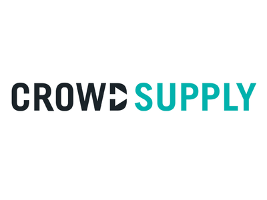phpMyAdmin, the popular free and open source web based tool for administering MySQL databases, has left the SourceForge building.
In a blog post on Saturday, the project’s infrastructure coordinator, Michal Čihař, announced that a migration from Sourceforge is all but complete. The few remaining items left on the SourceForge server will be “hopefully handled in upcoming days as well.”
 A popular web based application for administering MySQL databases, phpMyAdmin is the preferred tool of many webmasters for working with MySQL when used to power websites and is installed by default with most web hosting packages. The app can be used to perform a variety of tasks, including creating, modifying or deleting databases, tables, fields or rows; executing SQL statements; and managing users and permissions.
A popular web based application for administering MySQL databases, phpMyAdmin is the preferred tool of many webmasters for working with MySQL when used to power websites and is installed by default with most web hosting packages. The app can be used to perform a variety of tasks, including creating, modifying or deleting databases, tables, fields or rows; executing SQL statements; and managing users and permissions.
Christine Hall has been a journalist since 1971. In 2001, she began writing a weekly consumer computer column and started covering Linux and FOSS in 2002 after making the switch to GNU/Linux. Follow her on Twitter: @BrideOfLinux



 While Larry’s been keeping an eye on things at the self-proclaimed most-important-open-source-conference-in-the-multiverse, I’ve been keeping an eye on the happenings in the FOSS world elsewhere. In the process, I’ve managed to make Larry part of this Week in Review.
While Larry’s been keeping an eye on things at the self-proclaimed most-important-open-source-conference-in-the-multiverse, I’ve been keeping an eye on the happenings in the FOSS world elsewhere. In the process, I’ve managed to make Larry part of this Week in Review.
 The project is called
The project is called  Who would ever think that Capital One, the what’s-in-your-wallet folks, would want to get serious about becoming an open source software developer? After all, it’s a banking institution, and while it’s not hard to imagine a bank would be developing some back end tools to be used in-house or by its clients, it’s not expected that it would spend big bucks publicizing these tools at OSCON.
Who would ever think that Capital One, the what’s-in-your-wallet folks, would want to get serious about becoming an open source software developer? After all, it’s a banking institution, and while it’s not hard to imagine a bank would be developing some back end tools to be used in-house or by its clients, it’s not expected that it would spend big bucks publicizing these tools at OSCON. The trolls are still at it. In spite of the fact that the Supreme Court was busy ruling against them last year — between January and June it ruled against patent holders six times — the number of cases being brought by non-practicing entities (NPE), which is one measure of a troll, continues to rise. According to a report published in June by patent defense organization
The trolls are still at it. In spite of the fact that the Supreme Court was busy ruling against them last year — between January and June it ruled against patent holders six times — the number of cases being brought by non-practicing entities (NPE), which is one measure of a troll, continues to rise. According to a report published in June by patent defense organization 


 MS Writes a Check: Well, this was probably inevitable. With a generous donation, Microsoft has become a gold contributor to the OpenBSD project — the first gold contributor — in an effort to get OpenBSD’s help in porting OpenSSH to Windows. This comes from a
MS Writes a Check: Well, this was probably inevitable. With a generous donation, Microsoft has become a gold contributor to the OpenBSD project — the first gold contributor — in an effort to get OpenBSD’s help in porting OpenSSH to Windows. This comes from a 



